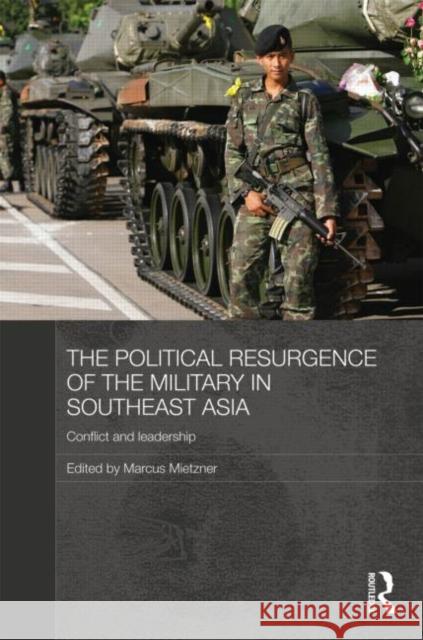The Political Resurgence of the Military in Southeast Asia: Conflict and Leadership » książka
The Political Resurgence of the Military in Southeast Asia: Conflict and Leadership
ISBN-13: 9780415460354 / Angielski / Twarda / 2010 / 180 str.
The Political Resurgence of the Military in Southeast Asia: Conflict and Leadership
ISBN-13: 9780415460354 / Angielski / Twarda / 2010 / 180 str.
(netto: 714,16 VAT: 5%)
Najniższa cena z 30 dni: 730,42
ok. 22 dni roboczych
Dostawa w 2026 r.
Darmowa dostawa!
In the late 1990s, prominent scholars of civil-military relations detected a decline in the political significance of the armed forces across Southeast Asia. A decade later, however, this trend seems to have been reversed. The Thai military launched a coup in 2006, the Philippine armed forces expanded their political privileges under the Arroyo presidency, and the Burmese junta successfully engineered pseudo-democratic elections in 2010. This book discusses the political resurgence of the military in Southeast Asia throughout the 2000s. Written by distinguished experts on military affairs, the individual chapters explore developments in Burma, Thailand, the Philippines, Vietnam, East Timor, Indonesia and Singapore. They not only assess, but also offer explanations for the level of military involvement in politics in each country. Consequently, the book also makes a significant contribution to the comparative debate about militaries in politics. Whilst conditions obviously differ from country to country, most authors in this book conclude that the shape of civil-military relations is not predetermined by historic, economic or cultural factors, but is often the result of intra-civilian conflicts and divisive or ineffective political leadership.
This book examines the role of the military in Southeast Asian politics, focusing in particular on developments since 2001. Each chapter addresses the role of the military in the politics of a particular country, with coverage of those states with traditionally high levels of military intervention in politics (Thailand, Myanmar, Indonesia and the Philippines) as well as those countries where the military has played a less significant role (Malaysia, Singapore, Vietnam and East Timor). The level of military engagement in politics is evaluated against certain criteria, including the depth of military involvement in the political institutions of the state, the economy, media and society, and in security affairs and internal military management. Each chapter then goes on to explain these trends, exploring important factors such as historical legacies, the quality of democratic governance, economic growth or decline, international factors, internal security threats, and internal military developments. Overall, this book is an important resource for anyone interested in the politics and military affairs of Southeast Asia, and adds to the global debate on military participation in politics, the role of foreign military aid in promoting political reform, and the importance of good governance for depoliticizing the armed forces.











